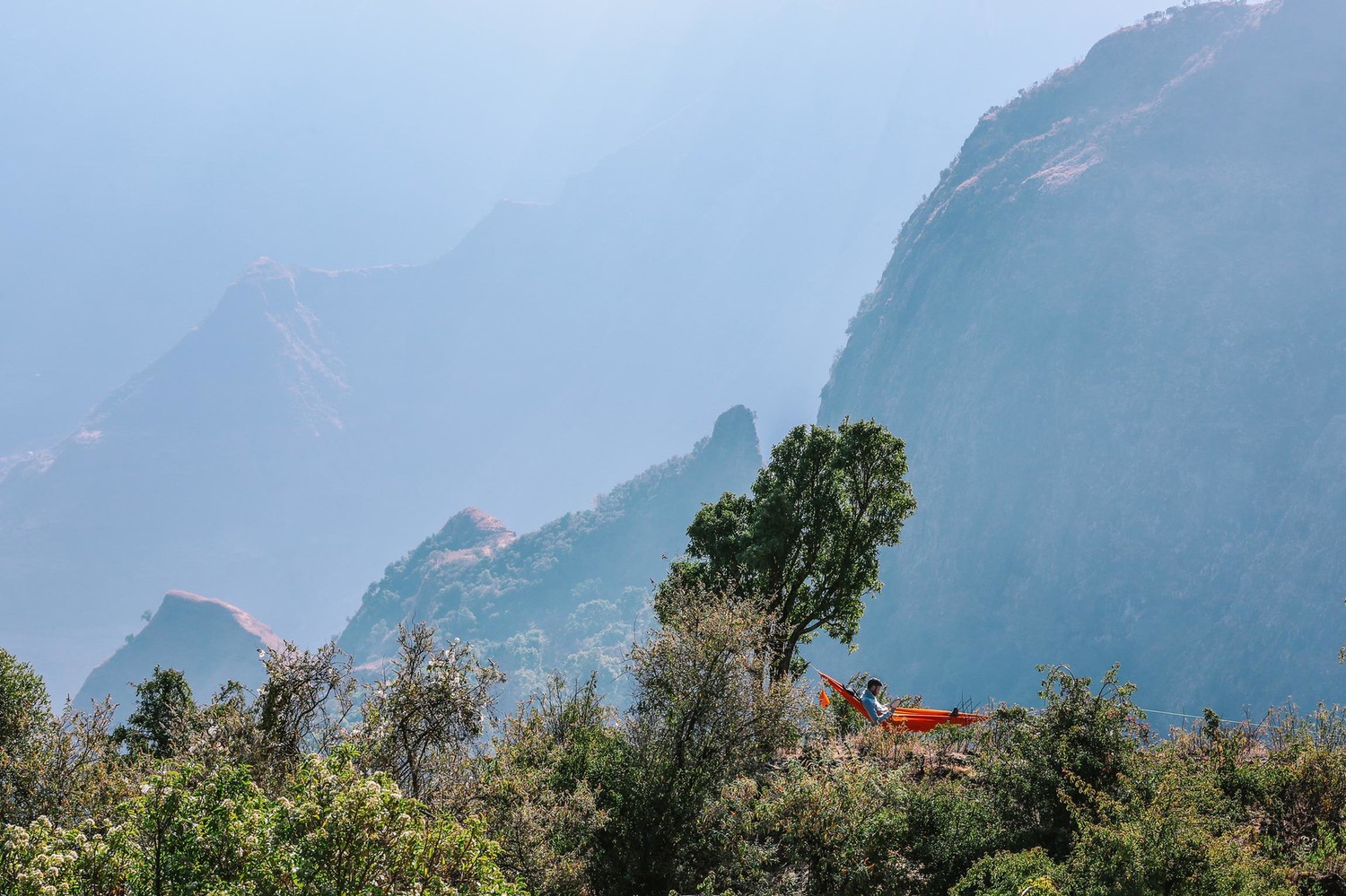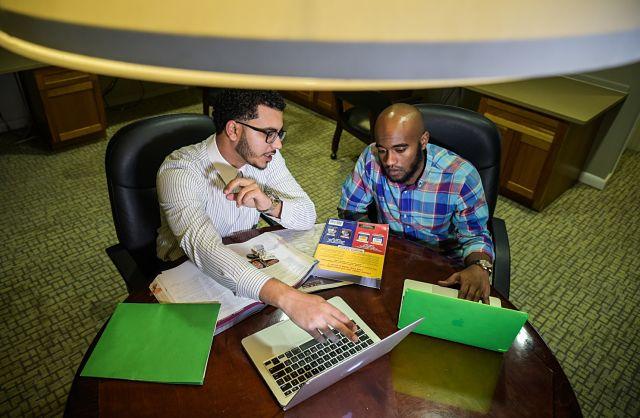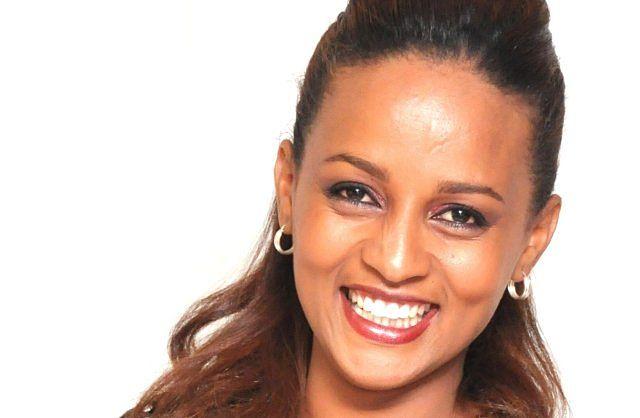From the introduction by author Yves-Marie Stranger
“Today, we may be sure Ethiopia is a country in northeast Africa, but the country’s borders have not always been so well defined. In the past, Ethiopia, depending on the whims and knowledge of writers and geographers, was at times made up of all of sub-Saharan Africa — with a coastline that wandered from the Red Sea to the Atlantic Ocean — or was solely the area circumscribed between the northern reach of Egypt’s desert and the confluence of the Blue Nile and Atbara Rivers. In a later earthly incarnation, the country becomes a saintly empire administrated by an anointed priest-king, known as Prester John: an empire so munificent and kaleidoscopic that it was found in the Congo, in Mongolia, in Syria and, finally, in the Christian kingdom of the hinterlands of the Red Sea. The Greek Bible had the spawn of Shem, Kush and Ham go and multiply in Egypt and Aethiopia — a tale later reprised in a legend that has Axum’s capital founded by none other than Ityopis, son of Kush. Later, the Ethiopian Queen Kandace’s eunuch is converted by the Apostle Philip on the road to Damascus — and returns to convert queen and kingdom to Christianity. . . .
It is this intertextual play carried out on a mind’s eye map, which is so fascinating to the amateur Ethiopianist, and to the visitor to Ethiopia. No country can be better grasped from the depths of an armchair, and a library is as good a place as any to make out the ancient contours of the land of Prester John, Mandeville and Rasselas, as well as the new outlines of a country that today is attempting with great vigor to shake off the modern myth it was saddled with — of Korem and the 1970s famine, of the Derg’s Red Terror, and of poverty and refugee camps.
“Today, we may be sure Ethiopia is a country in northeast Africa, but the country’s borders have not always been so well defined. In the past, Ethiopia, depending on the whims and knowledge of writers and geographers, was at times made up of all of sub-Saharan Africa — with a coastline that wandered from the Red Sea to the Atlantic Ocean — or was solely the area circumscribed between the northern reach of Egypt’s desert and the confluence of the Blue Nile and Atbara Rivers. In a later earthly incarnation, the country becomes a saintly empire administrated by an anointed priest-king, known as Prester John: an empire so munificent and kaleidoscopic that it was found in the Congo, in Mongolia, in Syria and, finally, in the Christian kingdom of the hinterlands of the Red Sea. The Greek Bible had the spawn of Shem, Kush and Ham go and multiply in Egypt and Aethiopia — a tale later reprised in a legend that has Axum’s capital founded by none other than Ityopis, son of Kush. Later, the Ethiopian Queen Kandace’s eunuch is converted by the Apostle Philip on the road to Damascus — and returns to convert queen and kingdom to Christianity. . . .
It is this intertextual play carried out on a mind’s eye map, which is so fascinating to the amateur Ethiopianist, and to the visitor to Ethiopia. No country can be better grasped from the depths of an armchair, and a library is as good a place as any to make out the ancient contours of the land of Prester John, Mandeville and Rasselas, as well as the new outlines of a country that today is attempting with great vigor to shake off the modern myth it was saddled with — of Korem and the 1970s famine, of the Derg’s Red Terror, and of poverty and refugee camps.
From the introduction by author Yves-Marie Stranger
“Today, we may be sure Ethiopia is a country in northeast Africa, but the country’s borders have not always been so well defined. In the past, Ethiopia, depending on the whims and knowledge of writers and geographers, was at times made up of all of sub-Saharan Africa — with a coastline that wandered from the Red Sea to the Atlantic Ocean — or was solely the area circumscribed between the northern reach of Egypt’s desert and the confluence of the Blue Nile and Atbara Rivers. In a later earthly incarnation, the country becomes a saintly empire administrated by an anointed priest-king, known as Prester John: an empire so munificent and kaleidoscopic that it was found in the Congo, in Mongolia, in Syria and, finally, in the Christian kingdom of the hinterlands of the Red Sea. The Greek Bible had the spawn of Shem, Kush and Ham go and multiply in Egypt and Aethiopia — a tale later reprised in a legend that has Axum’s capital founded by none other than Ityopis, son of Kush. Later, the Ethiopian Queen Kandace’s eunuch is converted by the Apostle Philip on the road to Damascus — and returns to convert queen and kingdom to Christianity. . . .
It is this intertextual play carried out on a mind’s eye map, which is so fascinating to the amateur Ethiopianist, and to the visitor to Ethiopia. No country can be better grasped from the depths of an armchair, and a library is as good a place as any to make out the ancient contours of the land of Prester John, Mandeville and Rasselas, as well as the new outlines of a country that today is attempting with great vigor to shake off the modern myth it was saddled with — of Korem and the 1970s famine, of the Derg’s Red Terror, and of poverty and refugee camps.









